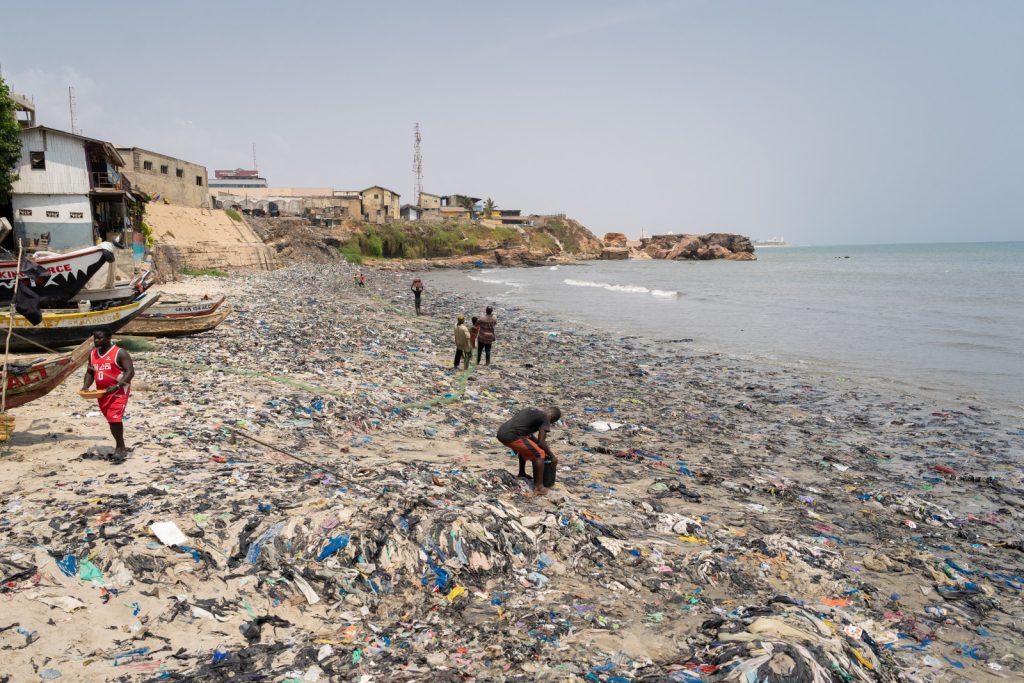Plastics are swallowing us
Abtvgh / GNPAP

Consumption patterns and current changing economic structures all over the world have led to a sharp increase in the use of plastic and the subsequent generation of waste.
Indeed, the durable nature of plastic and the many uses it can be put to have led to its increased use over the years.
Apart from these qualities, plastic is versatile, flexible, light, strong and relatively less expensive.
These features have led to the level where some schools of thought even assert that there is over-consumption of plastic goods across the globe, and that something drastic must be done to halt the situation.
Those with such opinions cannot be blamed, and their views can also not be discounted.
But the slow pace at which plastic degrades, coupled with the challenges with its disposal, littering and its attendant pollution of the environment, has brought the use of plastic into question.
In Ghana, data suggest that most products are packaged in polyethylene bags, which form about 70 per cent of municipal waste.
Also, over 10,000 metric tons of finished plastic products are imported into the country annually.
It is also said that Ghana’s population of more than 30 million people generate over 3,000 tonnes of plastic waste across the country daily.
The fact that plastic bags take between 10 and 1,000 years to decompose, while plastic bottles can take 450 years or more, should send shivers down the spines of environmentalists and well-meaning citizens.
This fact is critical, viewed against the backdrop that researchers have issued warnings that the impact of plastic on the soil, sediments and freshwater could have a long-term negative impact on such ecosystems, and that the threat is bigger on plants, animals and humans.
Currently, almost all of the plastic waste flow into the ocean.
By 2050, there could even be more plastic in the sea by weight than fish.
Not so long ago, the Ghana Ports and Harbours Authority expressed worry that plastic pollution of the sea posed safety challenges for vessels.
The massive heaps of plastic waste, made up of empty bottles, grocery bags, among others, strewn along the beaches are a very disturbing sight.
In spite of these, we note the role plastic has played in our development as a country.
One cannot imagine where the huge masses engaged in the plastic value chain would have found employment.
Certainly, the plastic industry has contributed to solving part of our unemployment problem.
The plastic menace has thus become a mixed bag for us as a country.
As we brood over the complexities of plastic waste generation, stakeholders at a roundtable on addressing plastic waste have reiterated the need to sensitize the public and create awareness of plastic pollution.
They argued that plastic was not evil, as claimed, but rather their poor disposal made it harmful to the environment.
The stakeholders said there was the need for behavioural change to create a positive impact on the disposal of plastic waste.
The Daily Graphic recalls the launch of the Ghana National Plastic Partnership Action Plan that was to be the game-changer in the management of plastic in the country.
We have also had hints from the Environmental Protection Agency of a possible ban on single-use plastics.
But these seem not to have been implemented effectively because of the adverse effects they will have on employment and the economy in general.
It is for this reason that we urge the ministries, departments and agencies responsible to consider the proposal by the stakeholders and see how best such ideas could be incorporated into the national plan to create a balance between fighting the plastic waste menace and safeguarding the welfare of the people without necessarily destroying the livelihood of the masses engaged in the sector.
This will create a win-win situation not only for the players in the industry, but for the general health of the national economy.



